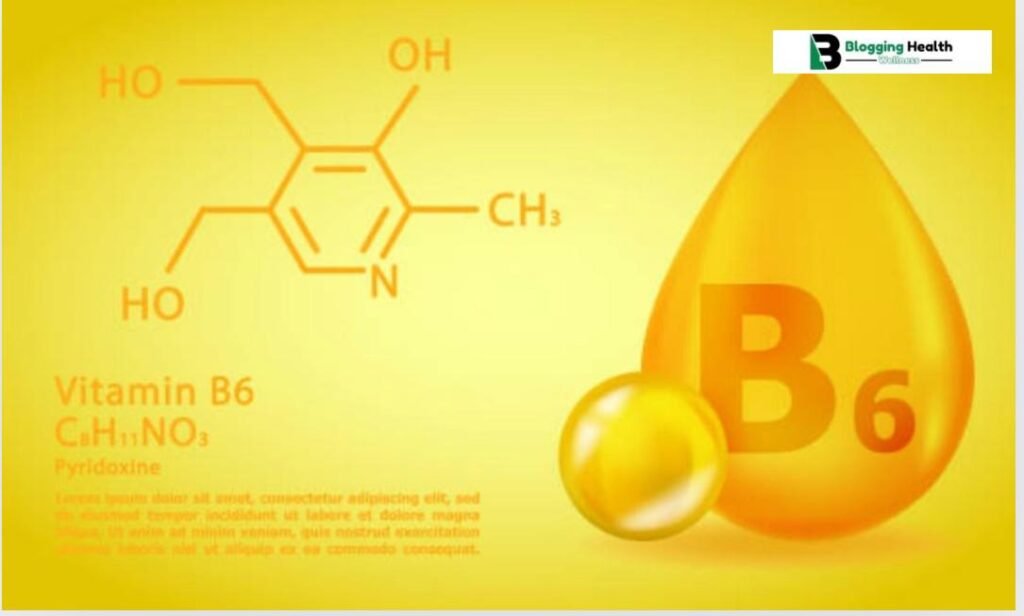In today’s fast-paced world, maintaining high levels of energy and mental focus is essential for productivity and overall well-being. Many factors contribute to how energized and focused we feel, including sleep, diet, exercise, and stress management. However, one often overlooked aspect of maintaining energy and cognitive function is ensuring that our bodies receive the right vitamins and nutrients. In this article, we’ll explore the key Vitamins for energy and focus that play a crucial role in sustaining energy levels and sharpening focus.
Understanding the Role of Vitamins for energy and focus
Vitamins are natural compounds that our bodies need in small equals function correctly. They play a important role in various biochemical processes, containing energy result, brain function, and the regulation of emotion. While all vitamins are important for overall energy, certain ones be conspicuous for their specific gifts to energy levels and cognitive acting.
How Do Vitamins Influence Energy?
Energy in the crowd is primarily create through the metabolism of fibers like carbohydrates, fats, and proteins. This process takes place in the mitochondria, frequently referred to as the strength of the cell. Several vitamins present image of coenzymes or cofactors in these metabolic pathways, ensuring that the cuisine we eat is capably converted into available energy.
How Do Vitamins for energy and focus and Cognitive Function?
Cognitive function, including focus, memory, and mental clarity, is heavily influenced by neurotransmitter activity in the brain. Vitamins contribute to the synthesis and regulation of these neurotransmitters, as well as to overall brain health by protecting against oxidative stress and supporting neuroplasticity.

Key Vitamins for Energy and Focus
1. Vitamin B12 (Cobalamin)
Role in Energy and Focus:
Vitamin B12 is crucial for the production of red blood cells, which carry oxygen to the body’s tissues, including the brain. Adequate oxygenation is essential for energy production and mental alertness. Additionally, B12 is involved in the synthesis of DNA and the metabolism of fatty acids and amino acids, all of which contribute to maintaining high energy levels.

Sources:
- Meat (especially liver)
- Fish
- Dairy products
- Eggs
- Fortified cereals and plant-based milks
Deficiency Symptoms:
- Fatigue
- Memory problems
- Difficulty concentrating
- Anemia
Supplementation:
People with dietary restrictions (e.g., vegans) or absorption issues may benefit from B12 supplements, either in the form of pills, sublingual tablets, or injections.

2. Vitamin B6 (Pyridoxine)
Role in Energy and Focus:
Vitamin B6 is a coenzyme in over 100 enzyme reactions, many of which are related to protein metabolism. It is also crucial for the production of neurotransmitters such as serotonin, dopamine, and GABA, which regulate mood, focus, and cognitive function. B6 helps in the conversion of glycogen to glucose, providing a quick source of energy for the body.
Sources:
- Poultry
- Fish
- Potatoes
- Bananas
- Chickpeas
Deficiency Symptoms:
- Irritability
- Depression
- Confusion
- Fatigue
Supplementation:
B6 supplements are available, but it’s generally advisable to obtain it through a balanced diet. However, those with certain medical conditions might require supplementation under medical supervision.
3. Vitamin B9 (Folate)
Role in Energy and Focus:
Folate is essential for DNA synthesis and repair, and it also aids in the production of red blood cells. It plays a significant role in brain function by helping to maintain levels of homocysteine, an amino acid that, in high levels, can impair cognitive function and increase the risk of stroke.
Sources:
- Leafy green vegetables
- Beans and legumes
- Citrus fruits
- Fortified cereals
Deficiency Symptoms:
- Fatigue
- Weakness
- Shortness of breath
- Memory problems
Supplementation:
Folic acid, the synthetic form of folate, is commonly added to supplements and fortified foods. It’s particularly important for pregnant women, as it reduces the risk of neural tube defects in developing fetuses.
4. Vitamin D
Role in Energy and Focus:
Vitamin D is unique because it is both a vitamin and a hormone that your body can produce from sunlight. It plays a crucial role in brain health, supporting the function of neurotransmitters, and protecting against cognitive decline. Vitamin D also influences energy levels by regulating calcium, which is essential for muscle function.
Sources:
- Sunlight exposure
- Fatty fish (e.g., salmon, mackerel)
- Fortified foods (e.g., milk, orange juice)
- Egg yolks
Deficiency Symptoms:
- Fatigue
- Depression
- Muscle weakness
- Impaired cognitive function
Supplementation:
Vitamin D deficiency is common, especially in people who live in northern latitudes or spend little time outdoors. Supplementation may be necessary, particularly in the winter months.
5. Vitamin C (Ascorbic Acid)
Role in Energy and Focus:
Vitamin C is a powerful antioxidant that protects the brain from oxidative stress, which can impair cognitive function. It also plays a role in the synthesis of norepinephrine, a neurotransmitter that affects attention and response actions. Additionally, vitamin C aids in the absorption of iron, which is crucial for preventing fatigue.
Sources:
- Citrus fruits
- Bell peppers
- Strawberries
- Broccoli
- Kale
Deficiency Symptoms:
- Fatigue
- Depression
- Poor concentration
- Anemia
Supplementation:
While it’s best to get vitamin C from food sources, supplements can be helpful, particularly during cold and flu season, as it also supports immune function.
6. Vitamin E
Role in Energy and Focus:
Vitamin E is another antioxidant that helps safeguard the mind from oxidative damage. It is important for claiming active skin, eyes, and invulnerable function, and it plays a function in natural indicating and deoxyribonucleic acid expression, that are main for intelligence energy and minimum energy requirement.
Sources:
- Nuts and seeds
- Spinach
- Broccoli
- Vegetable oils
- Avocados
Deficiency Symptoms:
- Muscle weakness
- Vision problems
- Cognitive decline
Supplementation:
Vitamin E is fat-soluble, so it’s important not to over-supplement, as excess amounts can accumulate in the body. It’s best to consult a healthcare provider before taking vitamin E supplements.
7. Vitamin B1 (Thiamine)
Role in Energy and Focus:
Thiamine is essential for energy production, as it plays a key role in converting carbohydrates into glucose, which is used as fuel by the brain and body. Thiamine is also involved in nerve function, which is critical for maintaining mental clarity and focus.
Sources:
- Whole grains
- Pork
- Legumes
- Nuts and seeds
Deficiency Symptoms:
- Fatigue
- Irritability
- Poor concentration
- Muscle weakness
Supplementation:
Thiamine supplements are generally safe, but it’s always best to aim for adequate intake through diet.
8. Vitamin B2 (Riboflavin)
Role in Energy and Focus:
Riboflavin is a key component in the production of ATP (adenosine triphosphate), the energy currency of the cell. It also helps to convert other B vitamins, such as B6 and folate, into active forms that the body can use, which further supports energy and cognitive function.
Sources:
- Dairy products
- Eggs
- Lean meats
- Green vegetables
- Fortified cereals
Deficiency Symptoms:
- Fatigue
- Eye strain
- Headaches
- Cracked lips
Supplementation:
Riboflavin is water-soluble, meaning the body doesn’t store it and excess amounts are excreted. Therefore, consistent daily intake through diet or supplements is necessary.
The Synergy of B Vitamins
The B vitamins, often referred to as the B-complex vitamins, work synergistically to support energy production and cognitive function. While each B vitamin has specific roles, they often function best when taken together. For instance, vitamin B12 and folate work together to produce red blood cells and maintain neurological health, while B6 is involved in the production of neurotransmitters that regulate mood and focus.
B-Complex Supplements
For those the one find it disputing to take enough B vitamins from their diet, a B-complex supplement maybe a handy habit to ensure able consumption. These supplements hold all eight B vitamins in individual dose, frequently at doses above what you’d find in foodstuff. However, it’s main to pick a finest supplement and consult with a healthcare wage earner, as overdone consumption of sure B vitamins can cause aftereffects.
Supporting Vitamins and Nutrients
While the vitamins mentioned above are among the most crucial for Vitamins for Energy and Focus, several other nutrients also play supporting roles:
1. Iron
Iron is alive for the result of red body fluid, the protein in red ancestry containers that moves oxygen to the intelligence and influences. A deficiency in iron can bring about emptiness, from fatigue, proneness, and weak concentration. Women, exceptionally, are at a greater risk of iron inadequacy on account of period.
Sources:
- Red meat
- Spinach
- Lentils
- Tofu
- Fortified cereals
2. Magnesium
Magnesium is complicated in over 300 biochemical backlashes in the body, containing strength result and influence function. It also helps organize neurotransmitters, that influence air and intelligent function. A magnesium deficiency can bring about fatigue, power cramps.


